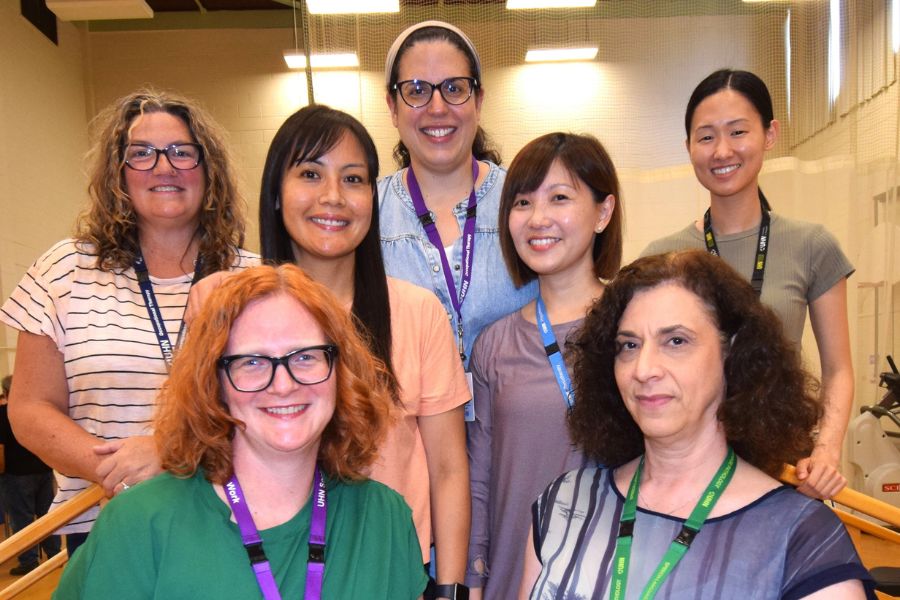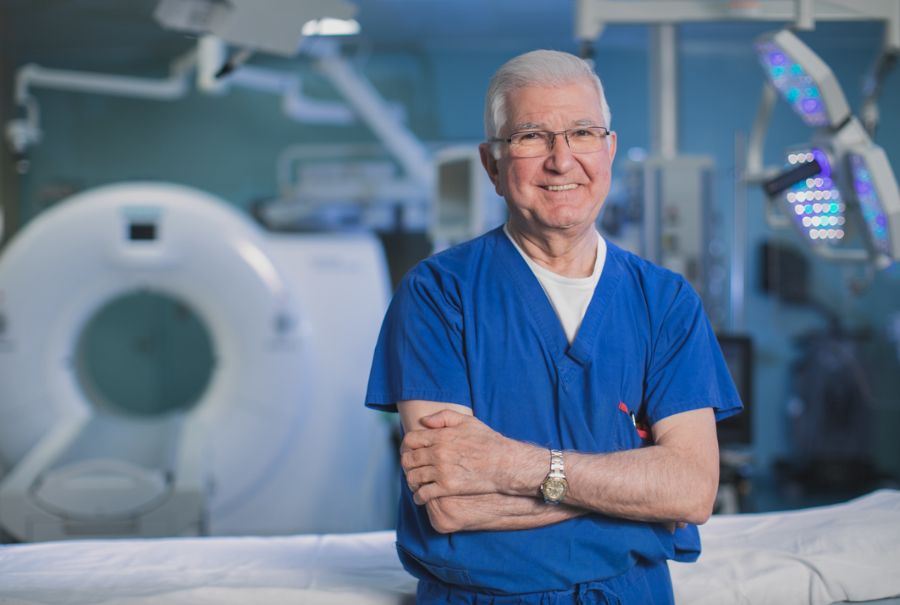Name: Donald Weaver
Title: Senior Scientist, Krembil Brain Institute
Number of years working in health care: 41
I was born and raised in: North Bay, Ontario
I decided to get into health care because I wanted to better understand the human brain and help people with brain disorders. The brain, with more than 85 billion neurons, is the most complex structure known in the universe, and dementias, such as Alzheimer’s disease (AD), are arguably the most complex disease of the brain. Now, if that doesn’t fascinate you, well…
My role here at UHN is for a decade, I was Director of Krembil Research Institute and Research Director of Krembil Brain Institute. Currently, I am a Senior Scientist at Krembil Brain Institute focused on the design and development of new drugs for the treatment of Alzheimer’s disease.
COVID-19 has affected me by being a learning experience. I have taken lessons from my Alzheimer’s research and taken them to COVID-19 and vice-versa – both involve inflammation of the brain. We are thus exploring connections between COVID-19, originally thought to be an infection of the lungs, and AD, which led me to write a paper, “The Nth Wave of COVID-19: will it be Alzheimer’s?” Also, as a spin-off from our AD research, we have a drug in human clinical trials for the treatment of ICU-admitted patients with COVID-19. On a personal note, COVID-19 also presented many challenges in terms of how we were able to gather together in the lab, how we continue to push forward in our work and how we care for each other as a team. I am very proud of our lab members and staff, who have persevered through a very difficult time.
The thing I love the most about my job is, centuries ago, explorers were people who charted unknown geographical areas, mapping the oceans and visiting new regions such as the Antarctic. Scientists are the explorers of the modern world; neuroscientists chart unexplored brain regions, mapping its pathways and studying new domains such as memory, emotions and thoughts. I love being a modern day explorer, particularly an explorer of the human brain. That is worth getting up for, every morning.
The most incredible thing I’ve seen at work is, as a neurologist and medicinal chemist, my research is focused on designing new molecules that might have what it takes to be a drug. I find it incredible that, as a chemist, we can take various starting chemicals, mix them together and ultimately create a new substance that has never been made before in human history. We call them “new chemical entities” – molecules that have never been made by anyone before. When you look down into your flask and see shiny solid crystals of a molecule that no one has ever made, now that is an incredible feeling.
I’m inspired by my patients. It is an overused expression that drug discovery should go from bench to bedside, or from the laboratory to patients. In my case, it is from bedside to bench. I am inspired by my patients, and I learn from them. I don’t know of any other medicinal chemist who is also a physician, but in my opinion this is an incredibly powerful combination. The lessons I learn from people living with chronic neurological diseases are a powerful source of motivation.
One of my personal heroes is Sir Isaac Newton. He started from humble origins and used mathematics and science to understand the world around him. He was an intellectual artist who used mathematical equations as a colourful palette to capture and explain the wonders of the natural world. I have read every biography written about him. My cat’s name is Newton.
I sometimes worry about time. There’s not enough of it. The brain is immense and problems of the brain present even greater challenges. Chipping away at these problems takes time, a lot of time.
I’ve found joy recently from one of my former patients. In addition to patients with Alzheimer’s and dementia, I also treated patients with epilepsy. Recently, out of the blue, I received an email from someone whom I had treated more than two decades ago. This person told me they had now been seizure free for more than 20 years, and that I had changed their life. To say that this gave me “joy” would be an understatement.
My favourite book (or movie) is Jane Eyre. The language in this book is absolutely delicious, and I use this word deliberately – this is a book to be devoured as food for the brain. Its depiction of human emotion, feelings and struggles is awe-inspiring. And this was so eloquently written by Charlotte Bronte – a quiet woman, living a quiet life in rural England.
My ideal day off is a warm July day, sitting by a lake, listening to the birds and the waves, while reading (or often re-reading) a well written novel or play. Every summer I do read one Shakespearean play. Last summer it was Richard III. Richard as an anti-hero and the themes of free will and fatalism are so magnificently dissected as only Shakespeare’s language can. On days like that, you hate to see the sunset.


